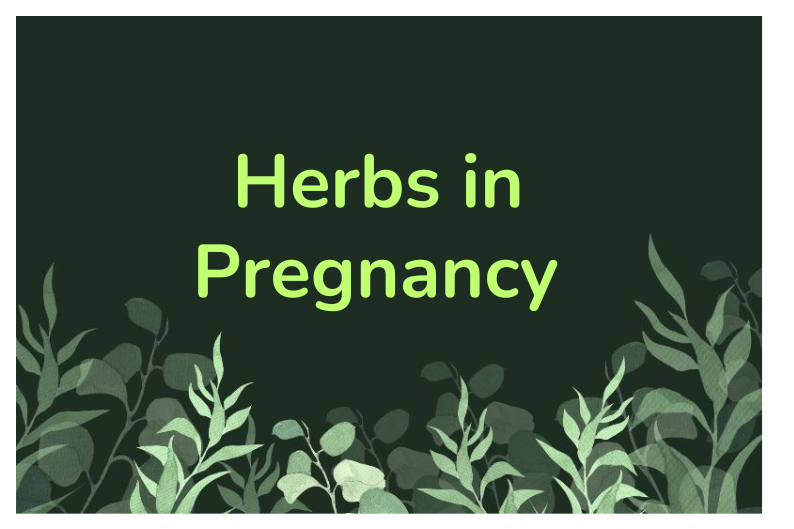
Herbs in Pregnancy: Safe Plant Use for Expecting Mothers
Herbs and Pregnancy: Safe Plant Use and Trimester Safety for Expecting Mothers
Pregnancy is a special time when a woman's body needs careful support and gentle nourishment. Many mothers turn to herbs and plant-based remedies, inspired by natural health experts like Gary Brecka and Barbara O’Neil, to ease common discomforts and promote wellness. Still, the safety of using different herbs can change depending on the stage of pregnancy, and not all herbs are safe for everyone. Knowing which herbs are safe to use, and when, helps mothers protect themselves and their growing babies.
Choosing the right herbs isn’t always simple. Some plants can offer support, while others could be risky, especially early in pregnancy. MC Herbs, as a trusted name in natural supplements, is dedicated to helping families make informed choices about safe plant use throughout each trimester.
Key Takeaways
- Herbal safety can change through each trimester.
- Some herbs can support pregnancy, but others may be unsafe.
- Informed choices create a safer, healthier pregnancy.
Safe and Unsafe Herbs During Pregnancy
Choosing herbs during pregnancy can feel confusing and even worrying. There are herbs that are helpful and gentle for mothers, but others may contain toxic compounds or raise risks for the baby.
Risks and Considerations for Herbal Use
Not all herbs are safe for expectant mothers. Some can lead to uterine contractions or affect hormone levels, raising concern for a baby's growth and the mother's comfort.
While many people enjoy herbal teas for relaxation or nausea, it is possible for strong plant compounds to cross the placenta. The wrong choice may cause cramping or more serious effects.
Herbal remedies from MC Herbs focus on simple, natural blends. The goal is to nourish, not overwhelm. Gary Brecka and Barbara O’Neil remind new mothers that less is often more, and whole plant extracts tend to work gently with the body’s natural rhythms.
Always start with single-herb products, not mixes. Watch for allergic reactions or sensitives. Avoid experimenting with new herbs late in pregnancy or in large amounts, especially if unfamiliar with their effects.
Herbs to Avoid in Pregnancy
Certain herbs have been seen as dangerous during pregnancy because they may trigger uterine contractions, miscarriage, or even harm the baby. Common herbs to avoid include:
- Pennyroyal
- Black cohosh
- Blue cohosh
- Dong quai
- Mugwort
- Sage (especially oil form)
These plants can contain toxic compounds or hormone-active chemicals. As shared by experts, even some familiar kitchen herbs can become risky in higher doses, such as rosemary or sage.
For a more complete list, visit this guide on herbs to avoid during pregnancy. Taking capsules, tinctures, or strong teas from the herbs above could cause side effects, including early labor or bleeding.
It is always the safest option to stay clear of these high-risk herbs until after delivery.
Herbs Generally Considered Safe
Some herbs have a long history of gentle use and are usually safe when used carefully. MC Herbs offers blends designed to support mothers with well-known and researched botanicals.
A few commonly accepted choices:
| Herb | Benefits |
|---|---|
| Red Raspberry Leaf | Tones uterus, rich in iron |
| Ginger | Eases nausea |
| Peppermint | Relieves mild digestion issues |
| Lemon Balm | Soothes stress |
Red raspberry leaf, for example, is celebrated by Barbara O’Neil for its ability to gently tone uterine muscles and offer minerals. Brewed as tea, these are mild and comforting.
Still, moderation is key. These are best enjoyed in food-like amounts, not in concentrated extracts. If sensitive, stop use and choose another gentle option.
Forms of Herbal Products and Administration
Herbal products come in many forms: loose tea, capsules, tinctures (liquid extracts), and essential oils. Each form has benefits and risks for pregnancy, and the way a herb is used matters.
Teas are usually the gentlest, delivering lower doses. Capsules can sometimes be too strong and may contain extra fillers. Tinctures are very concentrated; use with caution and seek naturally alcohol-free types when possible. Essential oils are powerful and easily absorbed; most oils should never be applied directly to skin, taken by mouth, or diffused around babies unless clearly known to be safe.
MC Herbs designs herbal teas and supplements focused on safety, gentleness, and quality. Whole dried herbs in tea or food form are their top picks for expectant mothers. Always label products, store out of children’s reach, and avoid experimenting with unfamiliar herbs or blends during pregnancy.
Trimester-Specific Herb Safety Guidelines
Pregnancy brings changes every month, and a woman’s herbal needs shift as her body grows and adapts. Herbs can support wellness, but their timing and adoption are especially important for safety and peace of mind.
First Trimester Herbal Safety Precautions
The first trimester is a delicate time for both mother and baby. Many herbalists, including those inspired by natural health principles, recommend limiting most herbal use during these early weeks unless absolutely needed for essential comfort. During early pregnancy, even gentle plants like clover, fenugreek, and matricaria recutita (German chamomile) can have strong effects, which is why extra care is needed.
Herbs to Avoid:
- Red raspberry leaf and raspberry leaf tea should be limited or avoided until later trimesters.
- Oregano and rosemary may be flavorful culinary herbs, but when used in larger medicinal amounts, they are best skipped right now.
The emphasis is on a nurturing, minimalist approach, choosing only the safest herbs and always in moderation. MC Herbs offers gentle blends crafted for this mindful stage, using only ingredients selected for safety early in pregnancy. More information can be found from the American Pregnancy Association’s guidance on herbs.
Second Trimester: Cautious Use and Monitoring
By the second trimester, the body has adjusted to pregnancy, and certain herbs may be introduced with caution. Red raspberry leaf becomes more accepted, as it is thought to strengthen the uterine muscles and prepare for labor, but always in moderation. Matricaria recutita can gently soothe tension and support restful sleep, but only in mild teas or blends.
Plants to Use Carefully:
- Small amounts of clover, oregano, and rosemary can be added to food, but they should not be used in high doses.
- Fenugreek is often avoided unless under guidance since it can affect hormone balance.
Never overlook the need for careful observation after introducing any new herb. MC Herbs’ trimester-safe supplements offer clear labeling and targeted blends for this middle stage, allowing mothers to embrace natural support with confidence. Visit this pregnancy herbs guide for more information about selecting safe options.
Late Pregnancy and Third Trimester Herbal Considerations
The final trimester is the time to focus on gentle support for both mother and baby as delivery nears. Red raspberry leaf tea is often taken to help tone the uterus and may help promote a healthy and efficient labor.
Best Herbs in Late Pregnancy:
- Red raspberry leaf or raspberry leaf tea (in moderate amounts)
- Calming herbs like matricaria recutita for relaxation
Avoid excessive use of rosemary, oregano, and clover, sticking to culinary portions or formulas proven safe for late pregnancy. Fenugreek should only be considered if recommended by an experienced natural health provider, as it can influence contractions and milk production.
MC Herbs focuses on late-stage pregnancy blends that soothe and support this final stretch, with careful attention to each ingredient’s purpose. Readers can learn more about which herbs are best to use, and which to avoid, by checking the herb safety guidelines for pregnancy.
Frequently Asked Questions
Choosing the right herbs during pregnancy can help with energy, discomfort, and preparation for birth. Certain plants must be avoided, while others can be safely explored with a gentle, informed approach.
Which herbs should be avoided throughout the entire duration of pregnancy?
Some herbs can trigger contractions, harm hormone balance, or impact your baby. Popular examples to avoid include blue cohosh, black cohosh, pennyroyal, dong quai, and tansy. These herbs may raise the risk of miscarriage or cause other complications, so be careful to avoid their use in teas or blends.
For more in-depth information about herbs to avoid during pregnancy, visit this resource.
What herbal remedies are considered safe for use during the first trimester of pregnancy?
The first trimester is a sensitive time. Most experts, including those with natural health backgrounds, suggest only the gentlest herbs if any are used at all. Some mild options are ginger (to ease nausea) and red raspberry leaf in very low amounts. Nettles are often discussed, but there are mixed views, so consult gentle guidance.
It’s important to try products with clear ingredient lists, like those found in MC Herbs’ carefully formulated blends for early pregnancy.
You can learn more about safe herbs in early pregnancy by checking this resource.
Can herbal medicine be used safely while expecting, and what precautions should be taken?
Herbal remedies can offer nourishment and gentle relief, but safety depends on the herb, form, and dose. Stick to a small number of tried-and-true herbs with a history of safe use, and always choose products from trusted companies like MC Herbs.
Pregnant women should avoid strong concentrations and multi-herb mixtures unless well-known for their gentle action, such as peppermint for digestion and chamomile for relaxation.
For more guidance about safely using herbs when pregnant, see this article.
Are there any herbs that are beneficial for the third trimester, and how should they be used?
Late pregnancy brings its own set of needs. Red raspberry leaf has a long tradition of supporting the uterus and preparing for labor when used in moderation, especially in the last weeks. Alfalfa is sometimes used for its nutritional value.
Start with a weak tea and listen to your body. MC Herbs also offers late pregnancy blends made for gentle support using minimal ingredients.
Explore this list of herbs considered safe in pregnancy for more ideas.
What guidance does the NHS offer on the use of herbs during pregnancy?
The NHS suggests women be cautious with herbal use, especially during the first trimester. It is best to stick with single-ingredient choices that have clear safety records. Remember, what is “natural” isn’t always gentle, so learning about each herb is important to make good choices.
More information about herbs and pregnancy is available online.
During pregnancy, what natural herbs can support childbirth preparation?
To support childbirth, many look to red raspberry leaf, which may help tone uterine muscles for labor. Nettles contain nutrients that can help with strength. Some traditional herbalists encourage oat straw or lemon balm for calming effects.
As labor approaches, blends from MC Herbs designed for birth preparation may provide gentle, targeted support. Begin use only during the last weeks and always monitor for any reaction.
